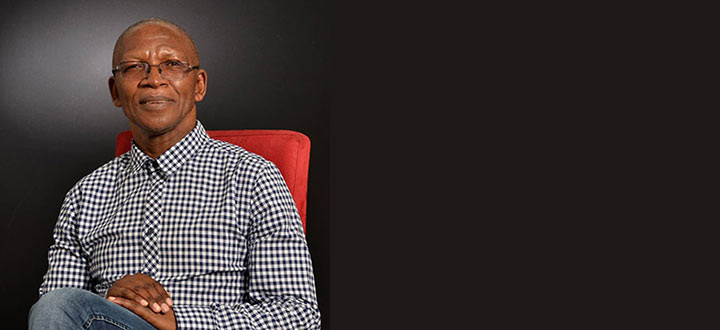

Prof Moeketsi Letseka, Incumbent: UNESCO Chair on ODL, Unisa
On 10 June 2020, Unisa’s UNESCO Chair on Open Distance Learning (ODL) achieved a milestone by hosting the inaugural virtual seminar in a series amidst the havoc wreaked by the outbreak of the Covid-19 pandemic to continue advancing its academic and scholastic mission. The presentation was titled Open distance learning in Covid-19: Challenges and opportunities.
The webinar formed part of the Covid-19 education response by Unisa’s UNESCO Chair on ODL. With lockdown conditions now the 'new normal', this seminar was held on Microsoft Teams, which is Unisa's preferred virtual platform. Since the lockdown began, and mindful of the looming risk of infection arising from congregating, most business meetings are now conducted virtually via Skype, Zoom, Go-to-Meeting, Microsoft Teams and other virtual platforms.
"The advent of Covid-19 challenges us to creatively explore constructive ways of keeping alive the conversations on critical issues, such as the future of education in general, and open distance education, in particular. When we engage virtually, as is now the norm, we create an environment that enables us to craft innovative ways to intervene and establish the infrastructure for sustainable human resource development initiatives," says Prof Moeketsi Letseka, incumbent of the UNESCO Chair of Open Distance Learning at Unisa, housed in the College of Education (CEDU).
The presentation fleshed out ODL in the wake of Covid-19, while also highlighting the related challenges and opportunities.
On 10 June 2020, Covid-19 statistics showed that the world's total deaths, active confirmed cases and estimated deaths continued to rise in the millions (7 121 464 cases and 403 921 deaths as on 8 June 2020), with South Africa trailing in the thousands (53 473 cases and 1 162 deaths as on 8 June 2020). Will the pandemic numbers exceed those of the A/H1N1 (Spanish flu) that lasted between February 1918 and April 1920? It is noteworthy to recall that there were confirmed infections of about 500 million and estimated deaths of more than 50 million.
Children and youth are at risk with more than 1,6 billion learners worldwide affected by school closures due to Covid-19. This is one of the many educational challenges. Other pertinent points that were discussed included, but were not limited to, the following:
The outbreak of the coronavirus has created serious challenges for education and we need to resort to new ways of thinking and engaging. To this end, there were 83 dedicated and loyal patrons of the research seminars who logged on to the Microsoft Teams platform and engaged in the robust and highly animated discussions on the subject of the presentation. There were colleagues from Accra, Ghana and Mbabane in eSwatini who graced the seminar with their presence.
The proposed opportunities included proposals that education stakeholders must set up or revive other modes of knowledge sharing, such as radio, digital resources and television. The challenges faced by education currently exceed the cost of data. Many of the participants agreed that deploying inclusive distant education solutions will require no-tech, low-tech and high-tech strategies.
The second webinar in the series will take place on 8 July 2020, between 10:00 and 12:00. The meeting link is https://bit.ly/2Ni0Wiq. The next theme to be tackled is How the Covid-19 pandemic has changed open distance learning—a curriculum perspective. Join Prof Geesje van den Berg, from the Department of Curriculum and Instructional Studies in CEDU.
You can find more information about the UNESCO Chair on Open Distance Learning (ODL) at Unisa here.
* By Dineo Horner, Acting Communication and Marketing Specialist, College of Education
Publish date: 2020/06/30